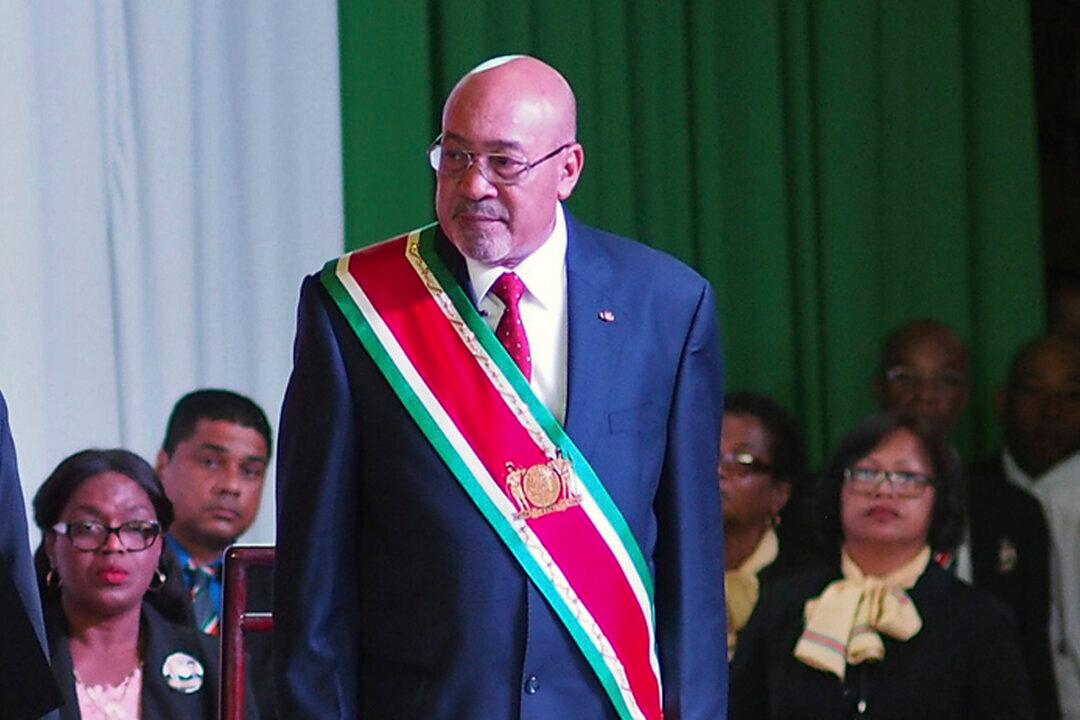PARAMARIBO, Suriname—Desi Bouterse, a military strongman who led a 1980 coup in the former Dutch colony of Suriname and then returned to power by election three decades later despite charges of drug smuggling and murder, has died. He was 79.
Suriname’s President Chan Santokhi on Wednesday reflected on Bouterse’s outsized legacy in a message of condolences to his family and called on the nation to “keep calm and maintain order.”





